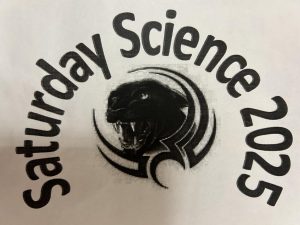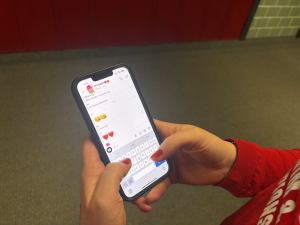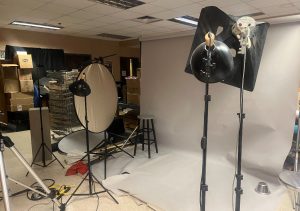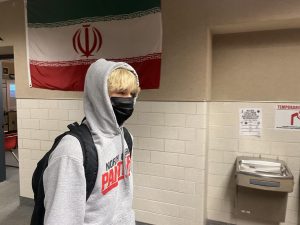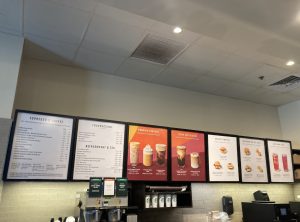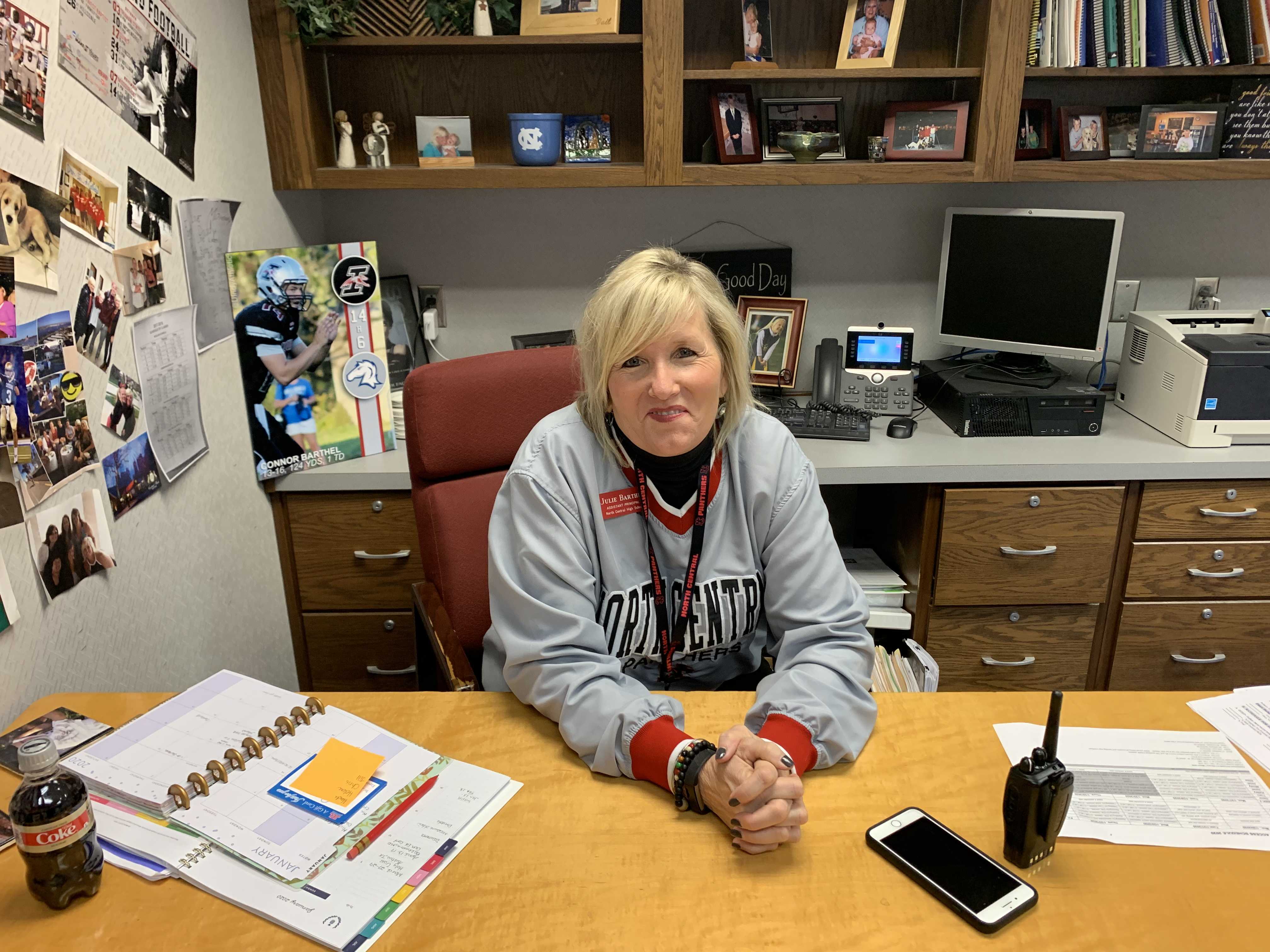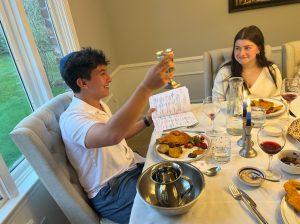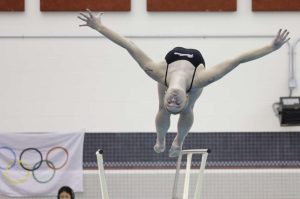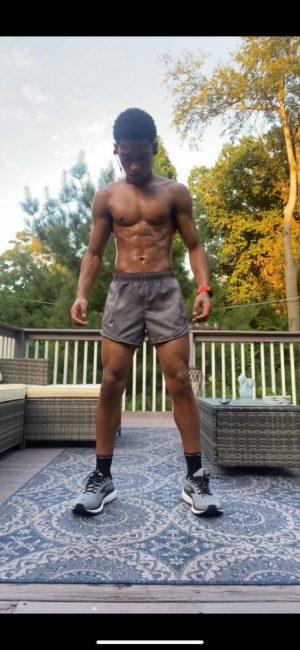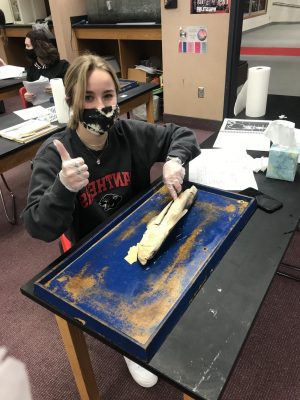Bring Change to Mind shines light on mental health stigmas

Students receive a glow stick for each lap they complete at Lawrence North’s “Light the Night” event. Beads were also selected by each participant to represent who or what they are walking for.
May 16, 2023
As Mental Health Awareness month, May is a big deal for Bring Change to Mind (BC2M), one of NC’s newest clubs. It gives them the opportunity to not only grow their publicity, but to spread their message of ending the stigma.
BC2M is a national program established by Glenn Close after her sister and nephew received backlash within their community for needing treatment for their mental health. The program began in 2009, holding its first PSA in Grand Central Station. In 2015 the program launched its high school detector, and in 2017 BC2M was brought to Indiana by the Department of Education. The state is now one of seven main geographic regions and a hot spot for new programs.
Annie Cole is a Regional Program Associate for BC2M in Indiana, working with schools south of Noblesville, such as Lawrence North, Park Tudor, Arsenal Tech and expanding down south to Evansville. Though Cole has only been with the program for a year, she has witnessed its massive growth.
“We’re the quickest growing region out of our organization, and I think the best part is that the community is growing. When I came on board, we had just about 50 schools; we’re now at 87 and our goal is to hit our 100 mark by the fall,” Cole said.
Though having reached many schools within Indiana since its arrival, the program did not enter NC until this school year, when social workers Julianne Shannon and Ja’Nette Johnson were reached out to.
“I got reached out to about it because myself and Miss Johnson did a mental health awareness event last May. We’ve also been involved in some of the other mental health supports here,” Shannon said.
Still, BC2M is a relatively small program within the school, suffering from the stigmatism they are striving to get rid of.
“What’s sort of shocking to me is that even when we’re out there talking about it, trying to normalize it, somebody will say ‘you’d be crazy if you went to a group like that,’” Shannon said. “It’s not a therapy group; it’s not a support group necessarily. It’s a group of student leaders who want to change the climate of the school and provide a more positive environment, creating discussions and knowledge about mental health.”
In hopes of growing the program’s involvement and publicity, they promoted the Light the Night walk held by the BC2M program at Lawrence North. Being a longer-running program, LN was able to set up this event on April 28 at their track, offering mental health resources, yoga, food, music and more to create the all-inclusive environment the program works to promote.
“Two school districts right next to each other and supporting, supporting each other’s initiatives… It is really awesome to see,” Cole said.
Though each program has its sponsors and advisors, the BC2M strives to remain student-led, allowing those participating within the program to take the initiative in raising awareness for mental health within their communities.
“Our program is student-led, so students are really given that power and the tools to put on and have conversations in whatever capacity they see best fits their school community. The goal is that they take it out of the club and they do a lot of initiatives,” Cole said.
BC2M at NC follows the same ideal. While taking inspiration from LN, Shannon believes that any action or event put on by BC2M should come from the students.
“I want it to come from the kids. I don’t want to say ‘hey, let’s do this,’ I want them to come up with the ideas. It’s a learning experience for them to learn how to contact people and set up events and find some groups to fundraise with,” Shannon said. “As adults, the challenge is finding what it is that we can actually do in the space that we’re in, supporting them because we want it to be their ideas and their voice, not ours.”
The club drives itself to extend outside of its meeting, aiming to engage the community in activities to spread their message. With messages related to those of other clubs at the school, BC2M anticipates collaborations in the near future.
“We’ve talked about collaborating with some of the other groups, because here’s groups like Black Student Union and the Equity Club all doing similar things that we are as advocacy groups. We can all support each other and attend each other’s events,” Shannon said.
Downplaying a long-lasting stigma is a hard task for all groups, whether they are dealing with mental health, race, sexuality or more. Due to students being exposed to the majority of these factors, they have become the main focus on the goal of ending such stigmas. BC2M has found that up to 72% of students are more open to talking about mental health due to the efforts of the program.
“Being a student-led organization, it’s one that empowers students to be the change that they need in their communities. And so I think students should join it. It’s just a great place to find like minded people, a place to feel empowered to advocate for yourself or advocate for others and it’s a place that brings a lot of joy to communities,” Cole said.
BC2M is working to spread awareness for mental health throughout the month, wrapping up their club meetings on May 2, offering resources during lunch periods and even bringing therapy dogs to the student center. With the end of the year approaching rapidly, they hope that these small gestures can ease the stress of students and possibly grow interest in their club.
“We often feel like we’re alone, in whatever situation. But when we’re all together in a group, you know, they’re able to talk and see ‘Oh, this is what I’ve experienced,’ ‘This is what experience,’ or ‘I’ve been through that too.’ They’re able to help one another through situations and just be their own support system,” Johnson said.

